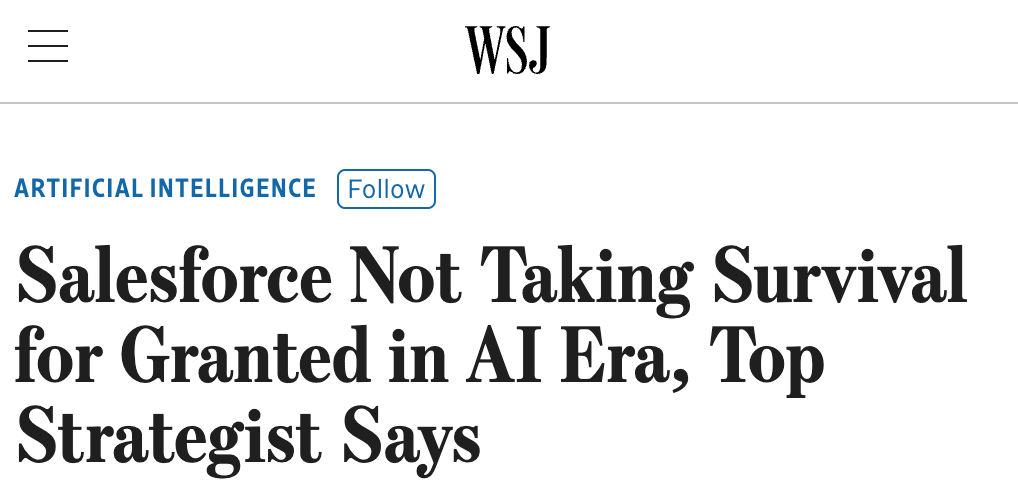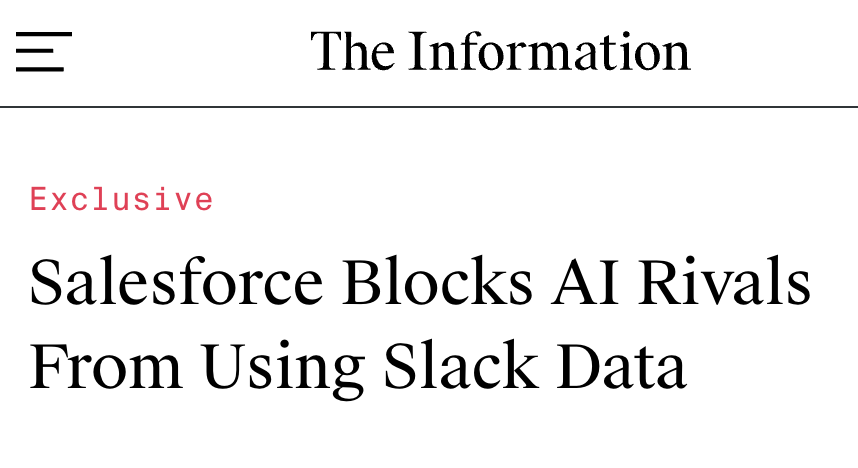Fighting for Context
Systems of record are recognizing they cannot “take their survival for granted.”
One strategy is to acquire : the rationale Salesforce gives for the Informatica acquisition.
Another strategy is more defensive - hampering access to the data within the systems of record (SOR).
Unlike the previous software era where SORs built platforms on top of themselves to develop broader ecosystems (in Salesforce’s case Veeva & Vlocity), the AI shift does seem to be more defensive.
[App builders] can no longer index, copy or store the data they access via the Slack application programming interface on a long-term basis.
This isn’t the first time within the AI ecosystem that companies have shut off access to APIs. The DeepSeek launch shook the ecosystem’s assumptions.
Newer models employ distillation : asking a previous model many questions as a way of training itself for far less to achieve similar results. The result : tighter controls over AI API access. OpenAI, Anthropic, Cohere, Google are just some of the foundation model companies that now have clauses explicitly banning developing competitors via the API.
Some startups have found terrific success by partnering with SORs : Abridge, AI for clinical documentation, has grown tremendously through its partnership with Epic. ServiceNow announced its intention to acquire MoveWorks for $2.85b.
AI has increased the stakes because the underlying workflows that have powered software are changing. BDRs no longer manage one email account, they manage five or ten or more. The growth rates of AI companies are faster than ever, & the context/data stored within systems of record is some of the most valuable assets in the market.
The combination of these three forces will drive more M&A, bigger outcomes, & greater defensive behavior as incumbents search for the right strategy for their business. For startups relying on big partners, the potential for platform risk has never been more acute.

